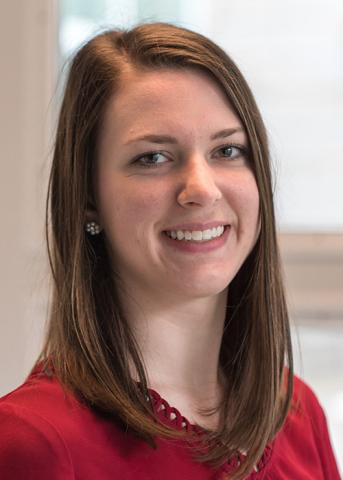What are you most passionate about in public health?
The intersection of food waste, hunger, food insecurity and food access. As an undergrad at Cornell, I helped to recover food from college dining halls and deliver it to a nonprofit in downtown Ithaca. They would distribute the food to people in the community who needed it. This sparked my interest.
What inspired you to join the Graduate Coordinated Program in Dietetics?
My volunteer work at the Rainier Valley Food Bank, which I did when I first moved to Seattle. It opened up this completely new side of food and nutrition for me and it solidified my passion for public health. I not only saw the challenges people were experiencing, but also their desires to have fresh fruits and vegetables and to cook healthy meals.
The UW was the only school that seemed to work with my interests, so it was a no-brainer. It wasn’t only the UW’s connections with organizations throughout the city and King County, but also the way the School of Public Health put an emphasis on both research and action – turning evidence into reality.
Tell us about your food waste project with the City of Auburn.
As part of last year’s (2017) Livable City Year project with the City of Auburn, I evaluated food waste and food recovery programs in school lunchrooms. We visited a couple of schools in the Auburn School District and assessed food waste and sorting methods. For example, were they throwing food in the compost bin and plastic bottles in recycling?
Did you actually sift through the waste bins?
Yes. We had to dig through all the trash, compost and recycling, and then weigh everything. The custodian would roll the bins out to us. We’d pull the waste bags out, remove all the trash and recycling, and sort them again into new bags. We sifted through hundreds of pounds of trash at each of the 15 schools in the district.
How did you turn this work into a master’s thesis?
Primarily, I was looking at how well the students were sorting through their waste. If there is enough food waste, there may be a need for a food rescue or sharing program. I also looked at whether this system was working and if it needed to be updated or changed in some ways.
What was your experience with Livable City Year (LCY)?
My experience was unique because I was a grad student and I was working with my advisor, Jen Otten. (Most LCY students are undergrads.) I highly recommend doing it. Driving down to Auburn once or twice a week was fantastic exposure – getting out of the UW and Seattle to meet and better understand our neighbors. It’s a great way, as researchers, to get out into communities and to combine the evidence-based practice and real life.
Tell us about your practicum. What are you focusing on?
I’m working with the Anti-Hunger and Nutrition Coalition, which advocates for eliminating hunger and increasing food access. A lot of my work has to do with policy and increasing access to food assistance programs like SNAP (commonly known as food stamps) and WIC (Women, Infants and Children), which assist low-income families and their children to purchase healthy foods. I’m evaluating where the gaps are and what we can be doing better.
And your rotation this past summer?
I worked with the Seattle Tilth Alliance at UW Farm on their youth garden works program. I was their nutrition educator and I worked alongside a culinary educator. Our role was to cook lunch every day with two or three of the farm crew. We would teach them hands-on cooking skills, as well as cooking on a budget of $1 a day.
Cooking seems to be a common thread in your life.
Anytime I have the opportunity to go into a kitchen, I absolutely love it.
Do you have any other hobbies, extracurricular activities or jobs?
I like to run and I just signed up for my first marathon. I still volunteer at the Rainier food bank every once in a while.
What do you like most about Seattle?
Exploring new coffee shops and enjoying the city’s off-leash dog parks with my dog Pop Tart.
What are your future goals?
I’d love to continue my work to eliminate food waste and reduce hunger. I can see myself at a nonprofit, perhaps in nutrition education or research. Eventually, if I could run an organization that focuses on food recovery, that would be the dream.
If you're interested in studying public health nutrition as a graduate student, visit the Nutritional Sciences Program website.

